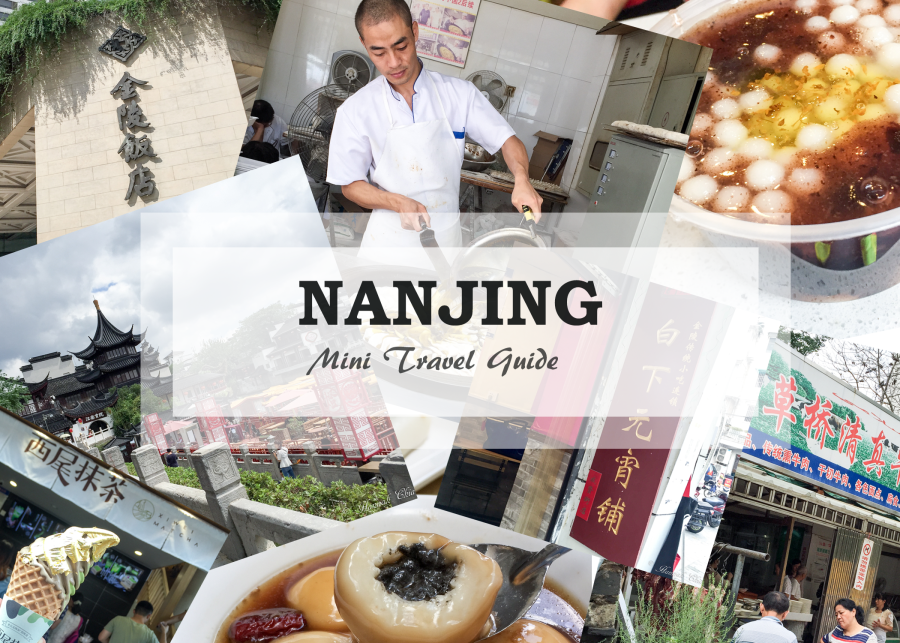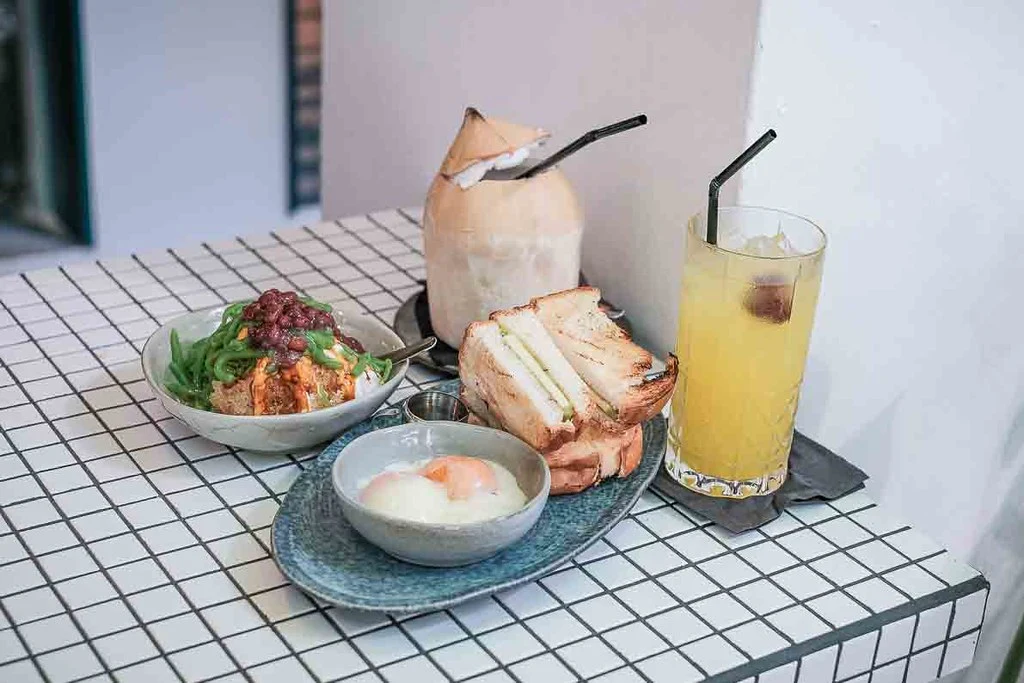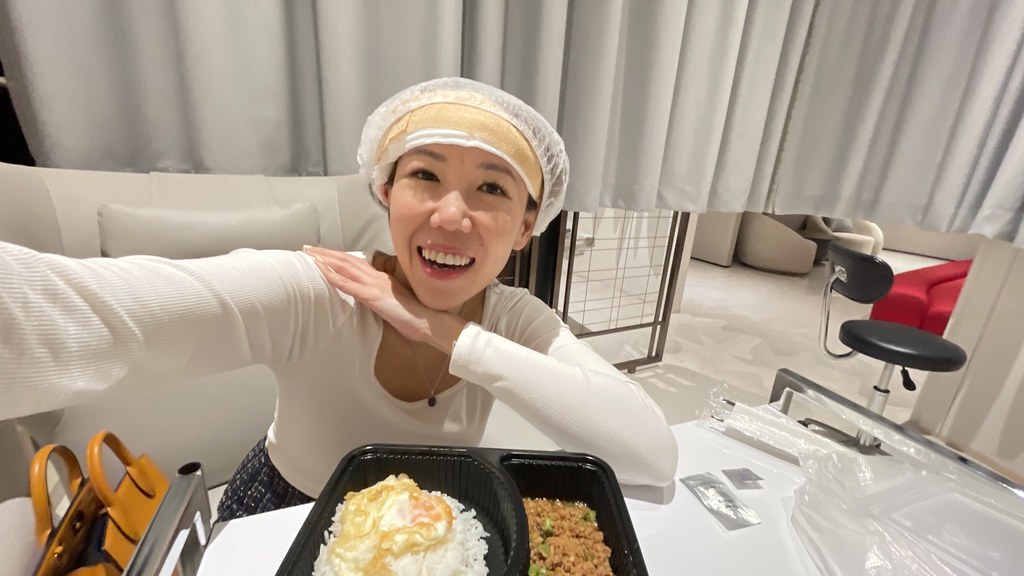A weekend getaway is fast becoming the norm for most Singaporeans, and with an increasing number of options to venture, we are definitely spoilt for choices. Away from the usual spots, I have always wanted to revisit Nanjing, one of China’s six ancient capitals and a modern metropolis near Shanghai and Hangzhou, but the city has often been overshadowed by her neighbors.

With Scoot offering direct flights this year to the city, I have had the option of doing a relatively low cost getaway on one weekend. Flying off from Changi at 10.25am, I can reach Nanjing at 3.50pm on the same day.
As I arrived at Lukou International Airport, I was incredibly impressed with the seamless connection it has to the city. Within minutes after arrival I found myself at the subway station at the airport (undoubtedly China’s cleanest and most modern).

For a mere 7rmb and under less than 40 minutes, I took the metro to Zhangfuyuan, at the most central part of old Nanjing and headed for my first stop, a trendy Taiwanese snacks eatery, Juancunli 眷村里.

The themed eatery was founded in July this year by a Taiwanese and later sold to his Nanjing business partner, Juancunli offers reinterpreted repackaged Taiwanese street food that was developed over 60 years in veteran military settlements when Nationalist soldiers from all over China retreated to Taiwan after the Chinese civil war.

When all these different cultures meet, a new food culture was created in these new settlements. Anyone would definitely find the Muji-like setting and artisanal wares at Juancunli pleasing to the eyes. I would recommend to go straight for the Teriyaki Chicken Pancake (26rmb) and skip the rest.

After a sumptuous breakfast, I headed out for more eats. About 100 metres away from the Mosque is the first outlet of the Halal eatery Cao Qiao Pan Fried Beef Dumplings. If you have watched the series “A Bite of China” this was the beef dumplings that have whetted the appetite of many viewers. The Nanjing government has also listed the beef dumplings here as a cultural asset of the municipality.

Shifu explained it will take a mere 3 minutes to cook each batch of dumplings, which were each hot, crispy and juicy.

The diners next door advised me to eat this against the wall as the hot juices within the dumpling will spill, potentially scathing anyone near me. A bun version is also available, but I will not recommend that.

The Jin Sha Building 金沙井太平天国建筑 here was once used as one of the many palaces of the short-lived Chinese Christian Kingdom. The King of then Tai Ping Tian Guo renamed Nanjing to Tianjing (Heaven’s Capital) as a dedication to Jesus Christ and this part of Chinese history remains a little murky to many.


Walk a few steps away and you won’t miss Jian Fa Gao Tuan, which is one of the few dessert shops selling traditional Nanjing style desserts that could be traced back to the Ming Dynasty.

At Xiwei Matcha 西尾抹茶 (not to be confused with the Matcha brand with the same Chinese name from Aichi prefecture), one can easily have their green tea fix. Charlie, a Nanjing native trained in France and Japan started this chain of Matcha and Houjicha themed desserts here in Xinjiekou Square in July this year and the products have already taken the city by storm. Queues are always long, and expect a good 45 minutes to get a seat, even on a weekday. Feeling decadent, I tried the Houjicha & Matcha (22rmb) soft swirl with gold foil on cone. The flavours were pleasing with the tea and milk well balanced though I would appreciate more if the sugar can be reduced further. On hindsight I am already quite impressed for an indigenous Chinese brand.

Since February this year, at least 10 Matcha parlour brands have sprung up in Nanjing, each claiming to be the first to start the trend. There are in fact more of such parlours than say Starbucks coffee shops.

I had the Houjicha softswirl (18rmb) here at Wanqi Matcha 丸柒抹茶 which was as good as Xiwei’s, if not better. The owner chef also owns AAA Lab, a by-reservation only sweets workshop not far away.

After all those eating, I checked in at the Jinlin Hotel (from 780rmb per night), one of the most institutional hotels on mainland China. It has played hosts to many powerful leaders from both sides of the Straits and included many illustrious guests, with Queen Magrethe of Denmark being the most recent one. Interestingly the hotel is owned and founded by Singaporean property tycoon Mr Tao Shing Pee of the Shing Kwan Group.

As night fall I headed to the hotel’s Plum Garden (one of China’s 50 best restaurants- from 350rmb per pax). The restaurant was engaged for a few times to work on the State Banquet, and at least a dozen dishes were prominent, notably the Wensi Tofu and the Smoked Mandarin Fish.

I started with a cup of Yuhua Green Tea, a premium quality green tea cultivated around the Jiangsu region. Produced in limited amount, the prized tea leaves is often gifted to State leaders. The tea was fragrant, uplifting and was a brilliant entrée in itself.

My first dish was the Drunken Cold Crab, and the crustacean is known to be at its sweetest during the autumn season. Lightly seasoned with a little vinegar, I soon finished conquering this little monster.

I must say I was really impressed with the Smoked Mandarin Fish. I have absolutely no idea how the texture of this Mandarin Fish was attained; it was firm yet jelly-like in its wholeness. The closest thing I could draw a comparison to is probably the egg tamagoyaki. The smokiness that came with the fish also brought much delight in eating it.

The Sautéed Deshelled River Shrimps was utterly delicious though I was thinking to myself it would take hours, if not days just to deshell all these petite prawns, which is each slightly bigger than a grain of promegranate.

Saving the best for the last, I slowly savour the Wensi Tofu with my bowl of white rice. The dish is considered one of the many culinary treasures of China, appearing more than thrice in State Banquets. Only a handful of chefs can make this dish since it takes at least a decade just to master the art of cutting the tofu into hairlike strands and even then, not many succeeded. Simmered in old hen stock with shiitake silvers, I was already blown away just by the looks of it, with the thin-est cut tofu strands you could imagine swimming in a pool of black shiitake silvers, making the entire soup seems unrealistic and a little out of this world. As I gently take my first sip, I could feel the tofu coming alive with the spirit of the Chef imbued. This was magical!

I was quite spoilt by the dessert choices here, with most items looking unique to me, but I settled for the exquisitely crafted Rainflower Sweet Dumplings. Green tea powder and red date purée were mixed with the glutinous rice flour to achieve the desired pretty swirls then stretched thin before filling it in with red bean paste and sesame paste respectively. The dumplings were later left to cook in an unsweetened dough soup which I thought was a good litmus test to the finesse of the craft. The sweet dumplings were superb by the way.


The next morning I went to Bai Xia Yuan Xiao 白下元宵铺, a traditional dessert store on Cheng Xuan Street selling the Red Bean Stew with Mini Rice Dumplings and Osmanthus Syrup, a Nanjing delicacy popular with the old and new alike. Cooked in a stew of red and black bean with mini glutinous rice balls, a generous dash of osmanthus syrup were added to complete the hot sweet soup.

Before heading back to Singapore on the same afternoon, I took a stroll around the precinct of the ancient Confucius Temple. While I had skipped many other attractions, it was because I know I will be back.
Scoot flies to Nanjing three times a week. Check out every Tuesdays’ Promotion @flyscoot.com
The above article is written by co-editor @ramenking2016. You can find him on instagram where he shares his love for food and travel.
Juan Cun Li Taiwanese Cuisine
No 244 Zhong Shan South Road, Nanjing
Cao Qiao Beef Pan Fried Dumplings (Halal)
No 11 Qijiawan, Bai Xia Qu, Nanjing
Taiping Tianguo Jinsha Building
No 34-36 Jinshajing, Qin Huai Qu, Nanjing
Jian Fa Gao Tuan
No 35 Jinshajing, Qin Huai Qu, Nanjing
Xiwei Matcha
No 135 Hongwu Road, Xinjiekou Square, Nanjing
Wanqi Matcha
No 1 Changjiang Garden, Beimenqiao, Nanjing
Jinlin Hotel & Plum Garden Restaurant
No 2 Hanzhong Road, Xinjiekou Square, Nanjing
Bai Xia Yuan Xiao
Corner of Chengxian Street, Xuanwu Qu, Nanjing













